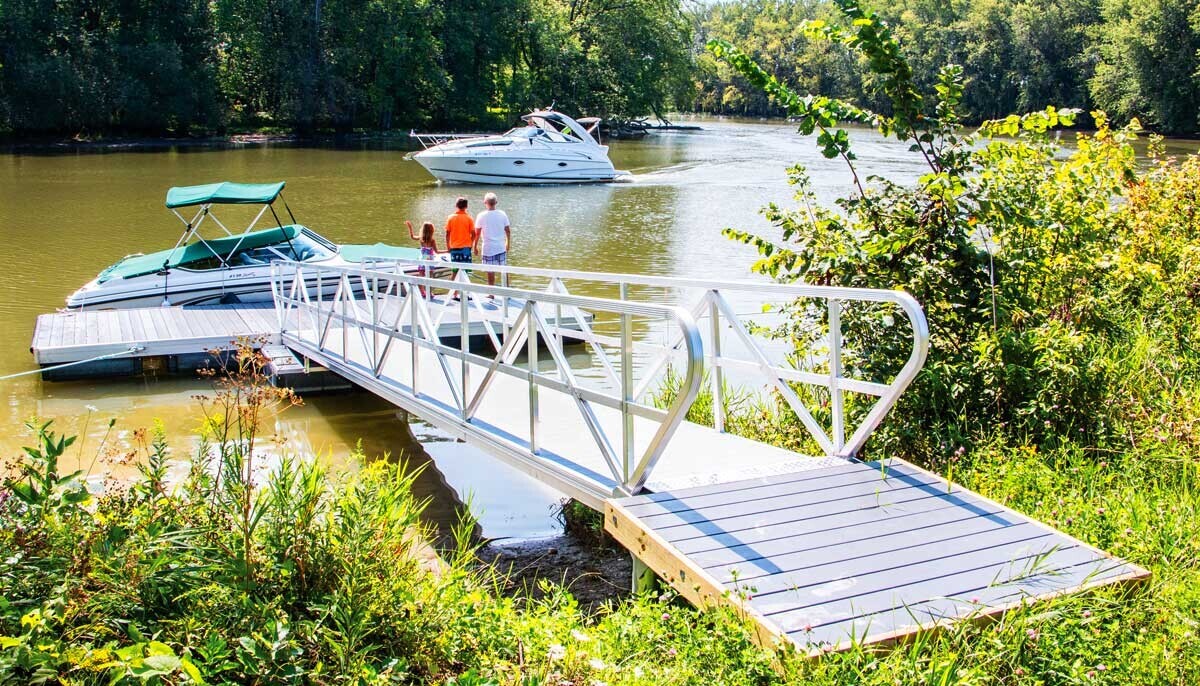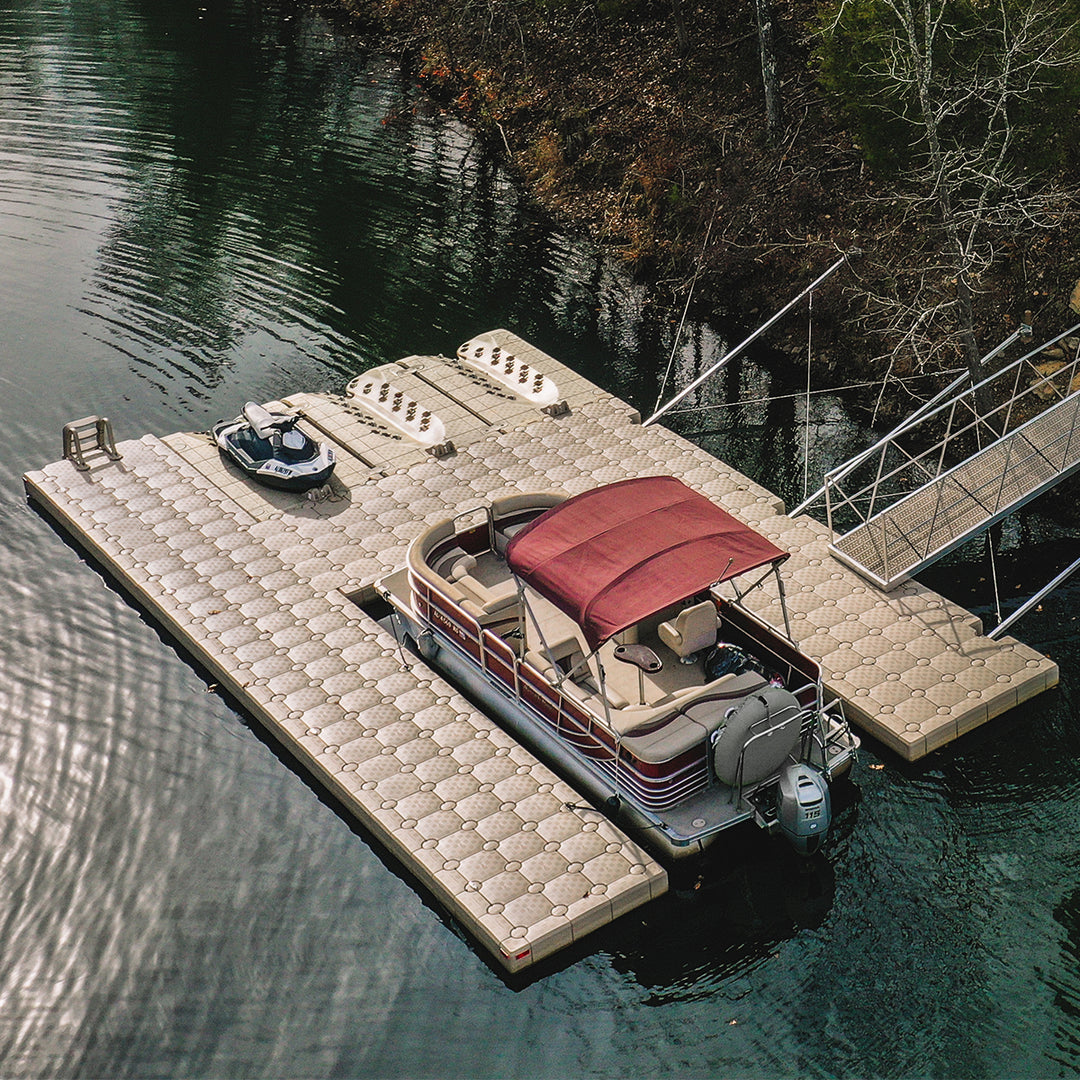Floating Docks: The Smart Selection for Modern Waterfront Living and Entertainment
Floating Docks: The Perfect Choice for Versatile Water Access
Floating docks existing an engaging solution for a variety of water access requires, offering adaptability that goes beyond standard mooring options. Their capacity to adapt to changing water levels while guaranteeing stability and security makes them specifically beneficial for both industrial and leisure applications. Moreover, the modular nature of floating docks assists in customization, satisfying details needs. However, the subtleties of installation and maintenance, along with the variety of applications, call for a closer examination to fully appreciate their possible advantages and implications for river accessibility approaches.
Benefits of Floating Docks
Floating docks offer numerous benefits that boost water access for different applications. Their capability to fluctuate with changing water degrees makes them specifically helpful in settings with rising and fall trends or seasonal variants. This versatility makes certain that vessels can easily tie without issue for the water's depth, offering a trustworthy system for leisure, industrial, and commercial uses.
Additionally, floating docks are frequently built from resilient products that stand up to corrosion, making them appropriate for long-term use in marine settings. Their installment is generally much less intrusive than standard set docks, decreasing the environmental effect and facilitating quicker implementation (floating dock services). This versatility permits for much easier moving or reconfiguration according to customer demands or ecological adjustments
Safety is another essential benefit; floating docks can give stable access for individuals disembarking or boarding from boats and reduce the danger of crashes related to unsteady surfaces. They can be developed to suit a variety of devices, such as cleats and fenders, improving performance. In general, floating docks represent an efficient service for improving water gain access to throughout diverse industries while promoting safety and environmental sustainability.

Kinds Of Floating Docks
Different kinds of floating docks accommodate various needs and settings, each designed with certain functions to enhance capability. One of the most common types include modular docks, which contain interlocking sections that allow for very easy modification and growth. These docks are excellent for entertainment usage, as they can be tailored to fit various watercraft sizes and water problems.
Another prominent alternative is the stationary floating dock, which stays secured in location however drifts with altering water degrees. floating dock builder. This kind is especially fit for locations with very little tidal changes, supplying steady gain access to for angling or swimming. In addition, there are drive-on docks, which include a sloped design that allows boats to conveniently drive on and off, making them suitable for personal watercraft and smaller vessels
For business applications, heavy-duty floating docks are offered, built from strengthened products to stand up to significant lots and extreme marine atmospheres. Lastly, green floating docks utilize sustainable materials and layouts to decrease environmental impact, typically including attributes like plants to support neighborhood wild animals. Recognizing the numerous sorts of floating docks makes sure that customers can pick one of the most ideal option for their certain needs.
Installation Process Summary
An effective installment of floating docks requires careful planning and attention to information to make certain ideal performance and security. The preliminary action entails analyzing the website problems, including water deepness, present, and possible challenges. This analysis educates the option of the proper dock products and style customized to the details setting.
Next, acquiring needed authorizations is essential, as lots of jurisdictions have regulations concerning construction on water bodies. The installation can proceed once approvals are protected. Begin by preparing the foundation, which might involve anchoring systems or pilings tailored to the dock type and local conditions.
Adhering to the structure arrangement, assemble the dock sections according to maker specs. Ensure that all parts are firmly secured and lined up to endure environmental stress and anxieties. Position the dock in the designated area, ensuring it is level and secure.

Maintenance Tips and Finest Practices
After the check this installation process is full, recurring maintenance plays an important duty in making sure the durability and functionality of floating docks. Routine evaluations must be performed to identify any type of signs of damage, wear, or deterioration - floating docks. Examine for any type of loose installations, fractures, or separation in the dock areas, as these can jeopardize structural honesty
Cleansing the dock is necessary to get rid of debris, algae, and various other accumulation that can influence its appearance and security. Make use of a gentle pressure laundry occasionally to maintain tidiness without triggering damage to the surface. check that Furthermore, using a safety sealant every couple of years can aid improve longevity and resist environmental wear.
Take notice of the mooring lines and supports, guaranteeing they are free and secure from rust. Change any type of degraded components immediately to stay clear of dangers. Seasonal changes might additionally be necessary; during severe weather, rearranging or strengthening the dock can avoid damages.
Applications for Floating Docks
Floating docks offer a wide variety of applications, dealing with both entertainment and business requirements. In leisure setups, they give smooth accessibility to rivers for activities such as boating, angling, and swimming. Their flexible nature permits installment in differing water levels, guaranteeing steady and safe accessibility despite tidal fluctuations.
Readily, floating docks are essential for marinas and waterside companies. They facilitate the docking of vessels, allowing reliable filling and discharging of items. Their modular layout enables for very easy development or reconfiguration to accommodate changing business needs, making them suitable for boat leasings, trip procedures, or fishing charters.
Furthermore, floating docks are used in ecological applications such as water research study and habitat repair. They can function as platforms for clinical studies, keeping track of water quality, or find here conducting wildlife surveys without troubling sensitive communities.
In industrial contexts, floating docks are utilized in construction tasks, supplying access to hard-to-reach areas for equipment and personnel. Their versatility, durability, and very little influence on the atmosphere make them an optimum choice for a vast range of applications, boosting both functionality and availability in numerous water-based settings.
Verdict
In verdict, floating docks represent an optimum solution for varied water gain access to requires, owing to their versatility, resilience, and modular design. Floating docks serve as an important property for entertainment, commercial, and ecological tasks, ensuring trusted accessibility to waterways and advertising lasting methods in aquatic environments.
Floating docks existing a compelling solution for a range of water gain access to needs, supplying versatility that goes beyond traditional mooring options.Floating docks offer countless benefits that enhance water accessibility for various applications. Generally, floating docks stand for a reliable solution for boosting water gain access to throughout varied fields while advertising safety and environmental sustainability.
One more preferred option is the stationary floating dock, which remains anchored in location yet drifts with changing water degrees.In conclusion, floating docks represent an optimal remedy for diverse water access needs, owing to their versatility, toughness, and modular style.